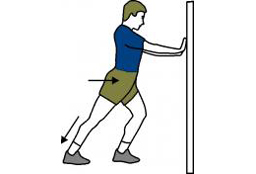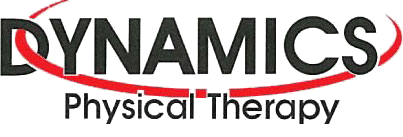Physical therapy in Northern Virginia for Volleyball
Stretching is an essential part of successful volleyball. A good stretching routine can help to minimize muscle imbalances, prevent injury and improve your performance on the court or beach. The following stretching program is designed for volleyball players who do not have any current injuries or individual stretching needs. If you have an injury, or a specific mechanical imbalance that may be holding back your performance, your Dynamics Physical Therapy physical therapist can design a stretching program just for you.
When is the Best Time to Stretch?
When your muscles are warm and relaxed! If you take your performance seriously, stretch after you have done a general body warm up of about 5-10 minutes (light running, cycling, or light whole body drills) and after your training or match. You may need to continue stretching throughout the match or training if there are breaks where your muscles and body start to cool down (i.e.: between matches or if you are not playing one game or part of a game.) Volleyball is a dynamic sport so you'll need both dynamic and static stretching. Dynamic stretches form part of your pre-game or training warm-up. Static stretches can be included at the end of your cool down or at other times to improve your overall flexibility.
Rules for Dynamic Stretching:
- Warm up your muscles first, then stretch while your muscles are still warm.
- Move through your range of movement, keeping control of the movement with your muscles. Do not allow momentum to control the movement by "flinging" or "throwing" your body parts around.
- You may feel light resistance in your muscles, but you should never feel pain during a stretch.
- Start with slow, low intensity movements, and gradually progress to full-speed, volleyball-like movements.
Rules for Static Stretching:
Warm up the muscles first.
- Slowly take your muscles to the end of their range. You will feel slight resistance in the muscle, but you should never feel pain during a stretch.
- Hold the stretch in a static position. Do not bounce.
- Hold each stretch for at least 20 seconds; longer is better. Repeat each stretch 3-4 times.
Examples of Dynamic Stretches:
Arm Circles:
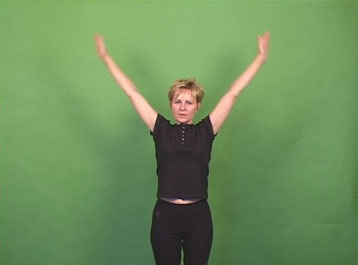
Leg Swings Forward and Back
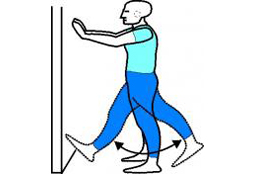
Leg Swings Sideways
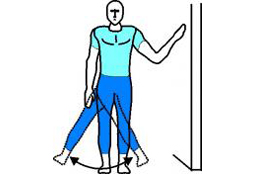
Jumps
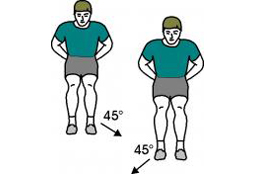
Lunges
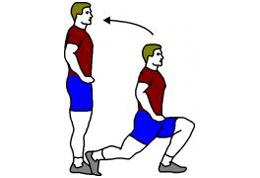
Back Rotation Stretch:
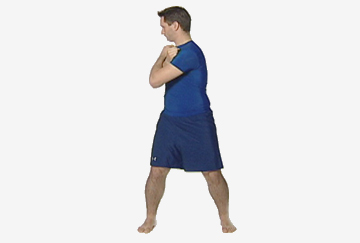
Shoulder Posterior Capsule Stretch
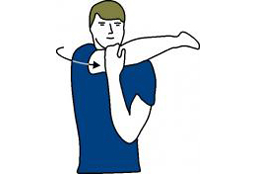
Neck and Trapezius
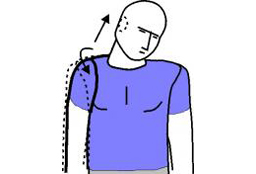
Triceps Stretch
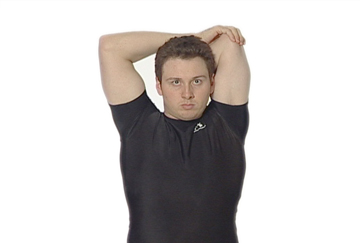
Pectoral Stretch
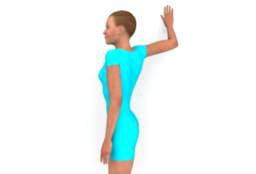
Lower back stretch
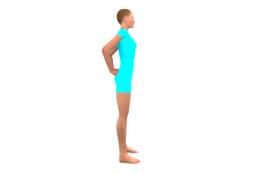
Hamstring stretch
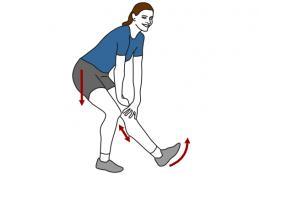
Quadriceps stretch
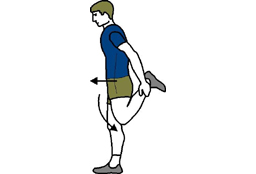
Hip Flexor Stretch
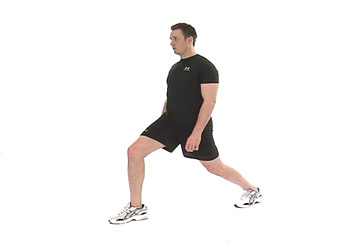
Calf Stretch
